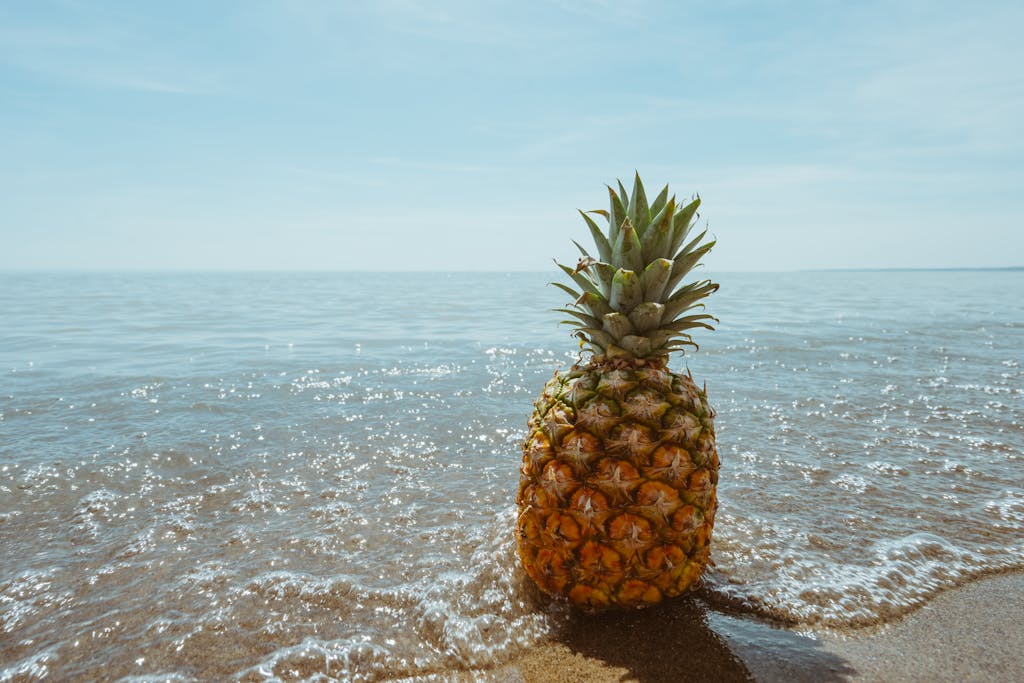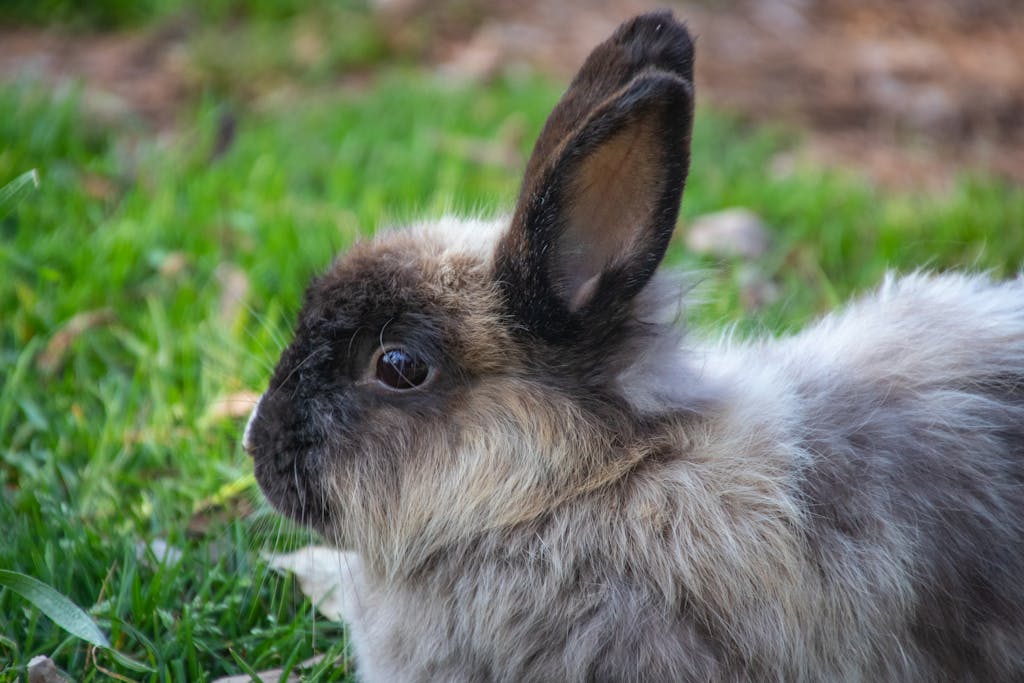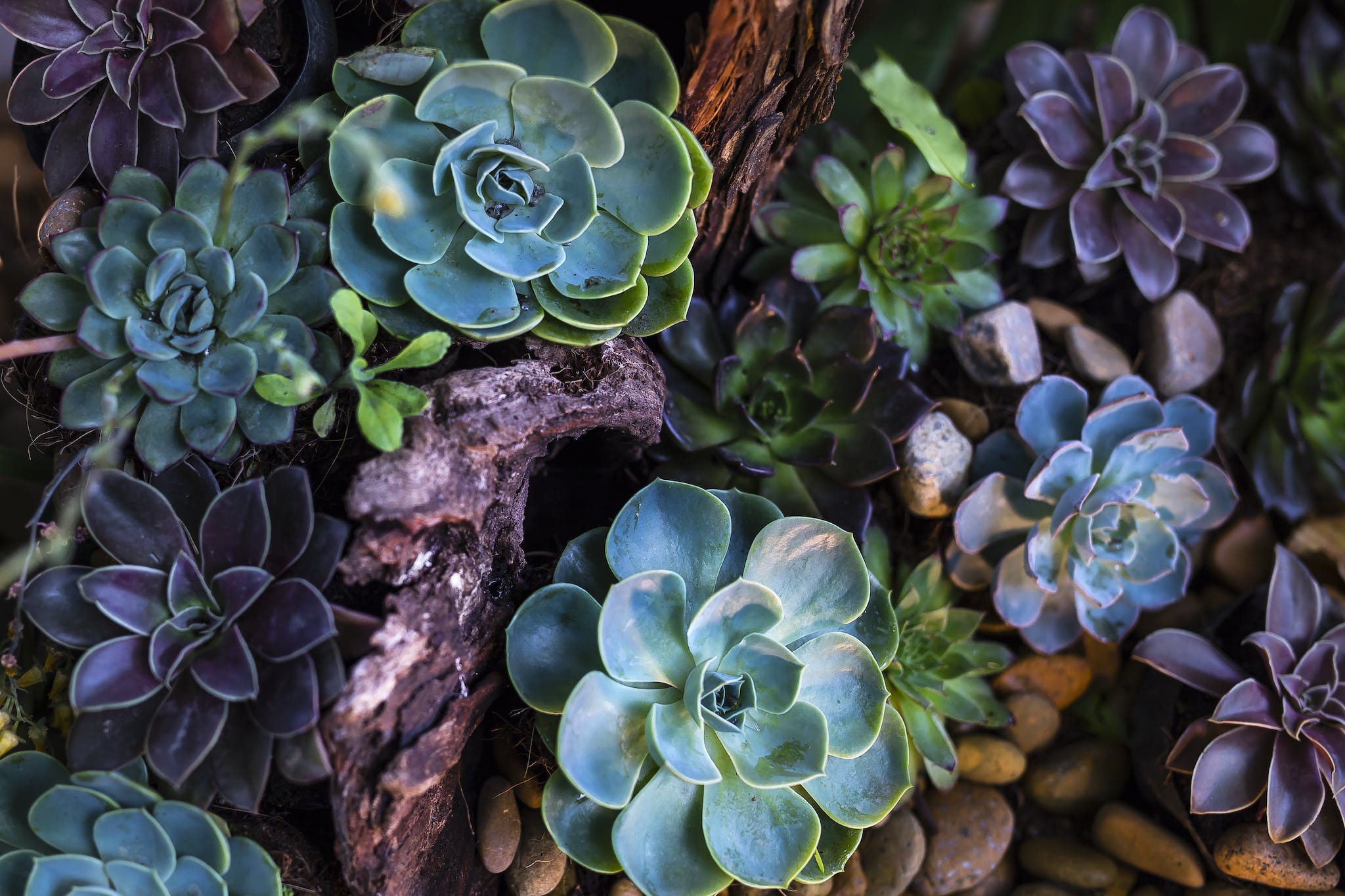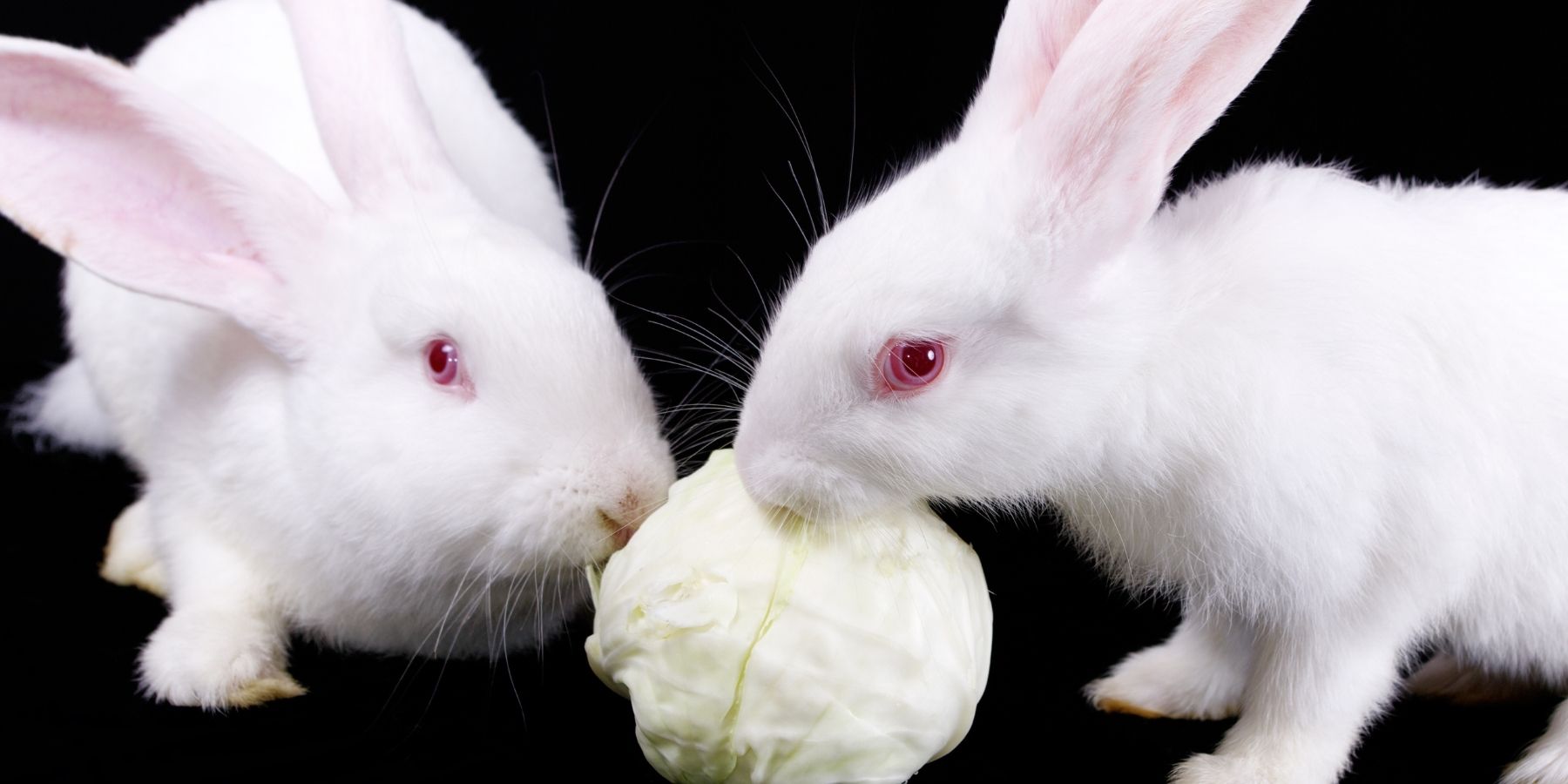Can Rabbits Eat Pineapple?
If you’re a rabbit owner, you might be wondering if it’s safe to feed your rabbit pineapple. Pineapple is a tropical fruit that’s enjoyed by many humans, but can rabbits eat pineapple too? The answer is yes, rabbits can eat pineapple, but it should be given in moderation.
Pineapple is a good source of vitamin C, which is essential for rabbits. It also contains other vitamins and minerals that can benefit your rabbit’s health. However, pineapple is high in sugar and should only be given as an occasional treat. Too much sugar can cause digestive problems and weight gain in rabbits, so it’s important to limit the amount you give them.
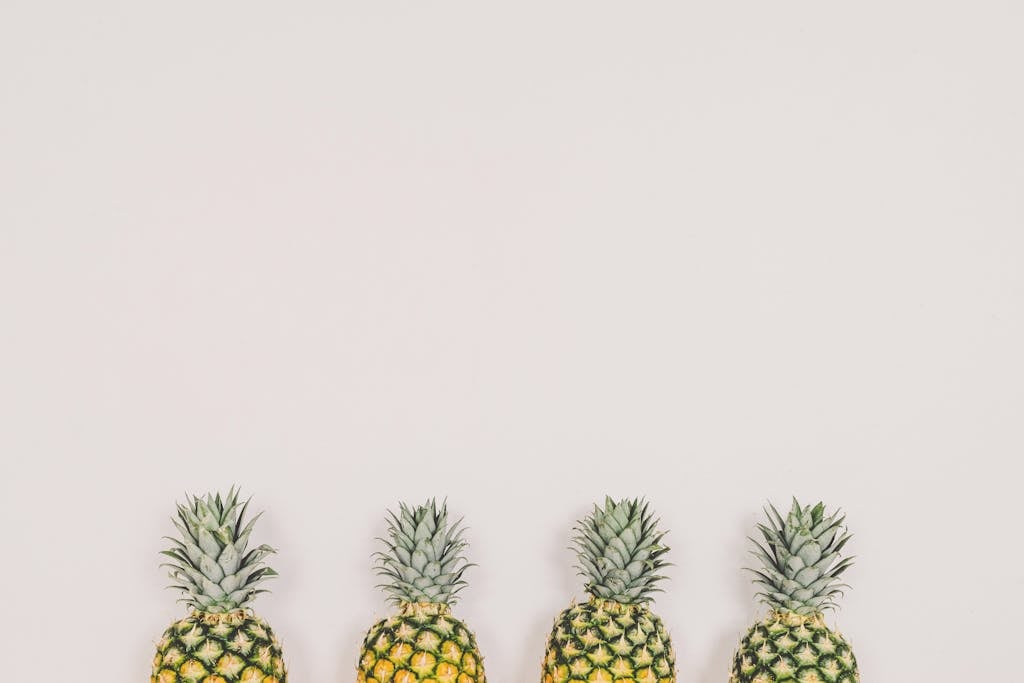
Nutritional Profile of Pineapple
Pineapple is a tropical fruit that is rich in nutrients and can be a healthy addition to your diet. It is a good source of vitamin C, manganese, and fiber. Pineapple also contains antioxidants and an enzyme called bromelain, which has been linked to various health benefits.
Vitamins and Minerals
One cup of pineapple chunks (165 grams) provides the following nutrients:
- Vitamin C: 131% of the Daily Value (DV)
- Manganese: 76% of the DV
- Fiber: 9% of the DV
- Thiamine: 9% of the DV
- Vitamin B6: 9% of the DV
- Copper: 9% of the DV
Pineapple is particularly high in vitamin C, which is an important antioxidant that helps protect your cells from damage. Vitamin C also plays a role in collagen synthesis, wound healing, and immune function. Manganese is another important nutrient found in pineapple, which is essential for bone health, metabolism, and antioxidant defense.
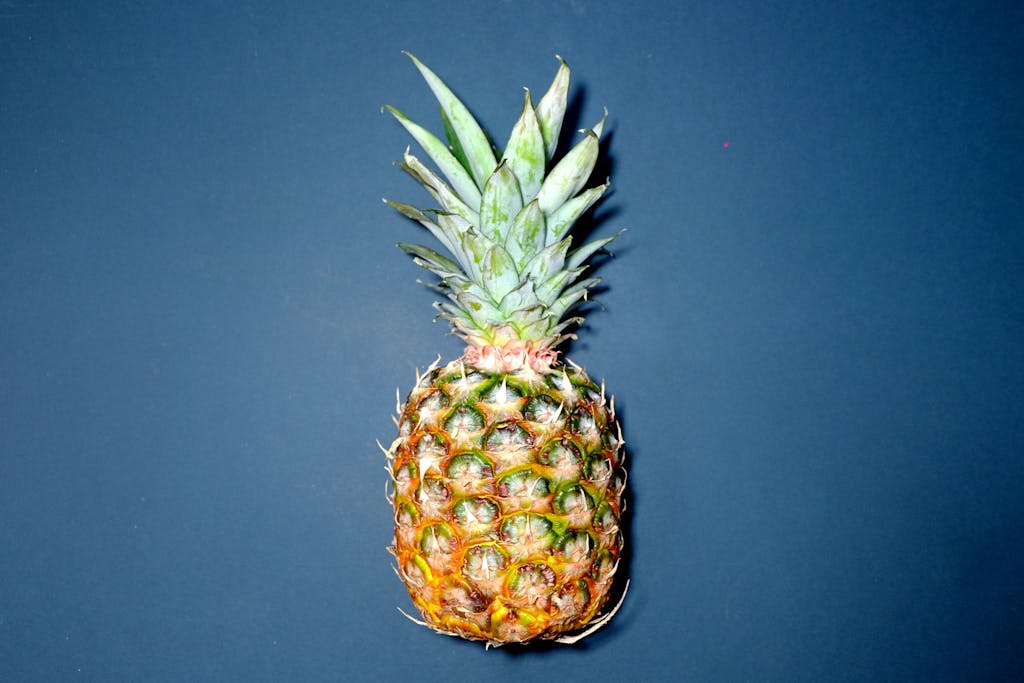
Sugar Content and Health Concerns
Although pineapple is a healthy fruit, note that it is also high in sugar. One cup of pineapple chunks contains about 16 grams of sugar, which is mostly fructose. While natural sugars in whole fruits are generally considered healthy, excessive consumption of added sugars can lead to health problems such as obesity, type 2 diabetes, and heart disease.
In addition, some people may be allergic to pineapple, which can cause symptoms such as itching, swelling, and difficulty breathing. If you experience any adverse reactions after consuming pineapple, it is best to avoid it in the future and seek medical attention if necessary.
Pineapple can be a nutritious and delicious addition to your diet. Just be sure to consume it in moderation and pay attention to any potential allergic reactions or health concerns.
Rabbits’ Dietary Needs
As a rabbit owner, it’s important to understand your pet’s dietary needs to ensure their health and well-being. Rabbits are herbivores and require a diet high in fiber to maintain a healthy digestive system.
Importance of Fiber
Fiber is an essential component of a rabbit’s diet. It helps to keep their digestive system functioning properly and prevents the development of gastrointestinal problems. The best source of fiber for rabbits is hay, which should make up the majority of their diet.
In addition to hay, you can also provide your rabbit with high-fiber pellets. Look for pellets that are specifically formulated for rabbits and contain at least 18% fiber. Avoid pellets that contain seeds, nuts, or other high-fat ingredients.
Safe Fruits for Rabbits
While rabbits primarily eat hay and pellets, they can also enjoy a variety of fruits and vegetables as treats. When it comes to fruit, it’s important to choose options that are safe for rabbits to eat.
Pineapple is safe for rabbits to eat in small amounts as an occasional treat. It’s important to remember that fruit should only make up a small portion of your rabbit’s diet and should never replace hay or pellets.
Other safe fruits for rabbits include:
- Apples (without seeds)
- Bananas
- Blueberries
- Mango
- Papaya
- Strawberries
When offering fruits to your rabbit, be sure to wash them thoroughly and remove any seeds or pits. Introduce new foods slowly and in small amounts to avoid digestive upset.
Understanding your rabbit’s dietary needs is essential to their health and well-being. Provide them with a diet high in fiber, primarily consisting of hay and pellets, and offer safe fruits and vegetables as occasional treats.
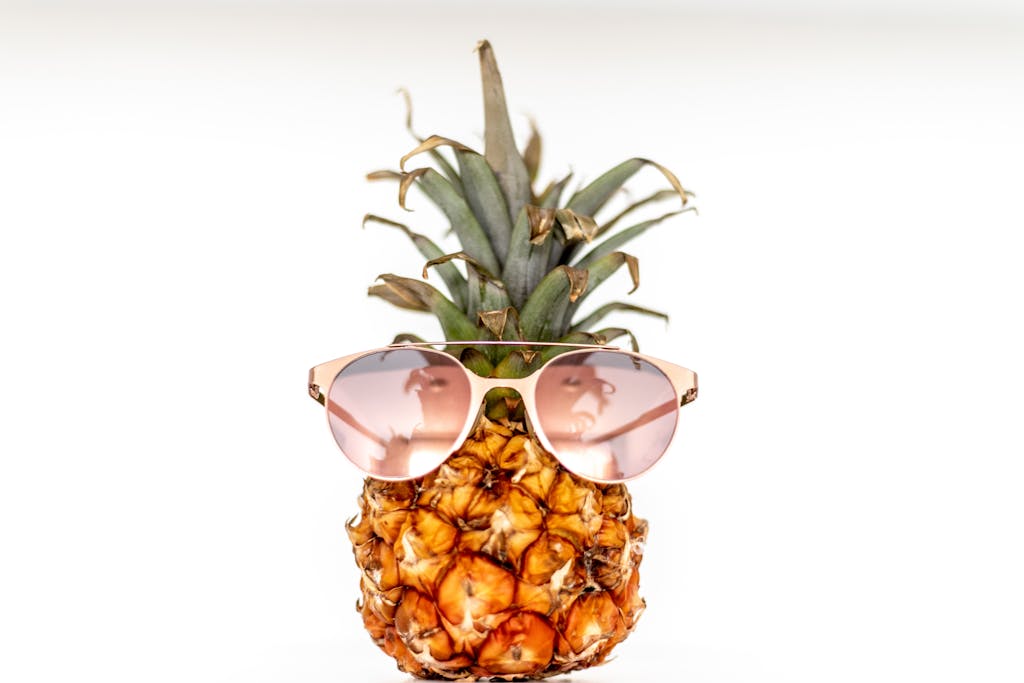
Feeding Pineapple to Rabbits
If you’re considering adding pineapple to your rabbit’s diet, it’s important to understand how to introduce it and serve it appropriately. Pineapple can be a healthy and tasty treat for rabbits, but it should be given in moderation and in small amounts.
How to Introduce Pineapple
When introducing pineapple to your rabbit, it’s important to do so gradually. Start by giving your rabbit a small piece of pineapple and monitor their reaction. If your rabbit seems to enjoy it and doesn’t experience any digestive issues, you can gradually increase the amount you give them.
It’s also important to note that not all rabbits will enjoy pineapple. If your rabbit doesn’t seem interested in it, don’t force them to eat it. Instead, try offering them a different type of fruit or vegetable.
Appropriate Serving Sizes
When serving pineapple to your rabbit, it’s important to do so in small amounts. Too much pineapple can cause digestive issues and upset your rabbit’s stomach. A good rule of thumb is to give your rabbit no more than a tablespoon of pineapple once or twice a week.
It’s also important to remember that pineapple should be given as an occasional treat and not as a regular part of your rabbit’s diet. Rabbits require a diet that is high in hay and fresh vegetables, with occasional treats like fruit.
Pineapple can be a healthy and tasty treat for rabbits when given in moderation and in small amounts. By introducing it gradually and serving it appropriately, you can provide your rabbit with a nutritious and enjoyable snack.
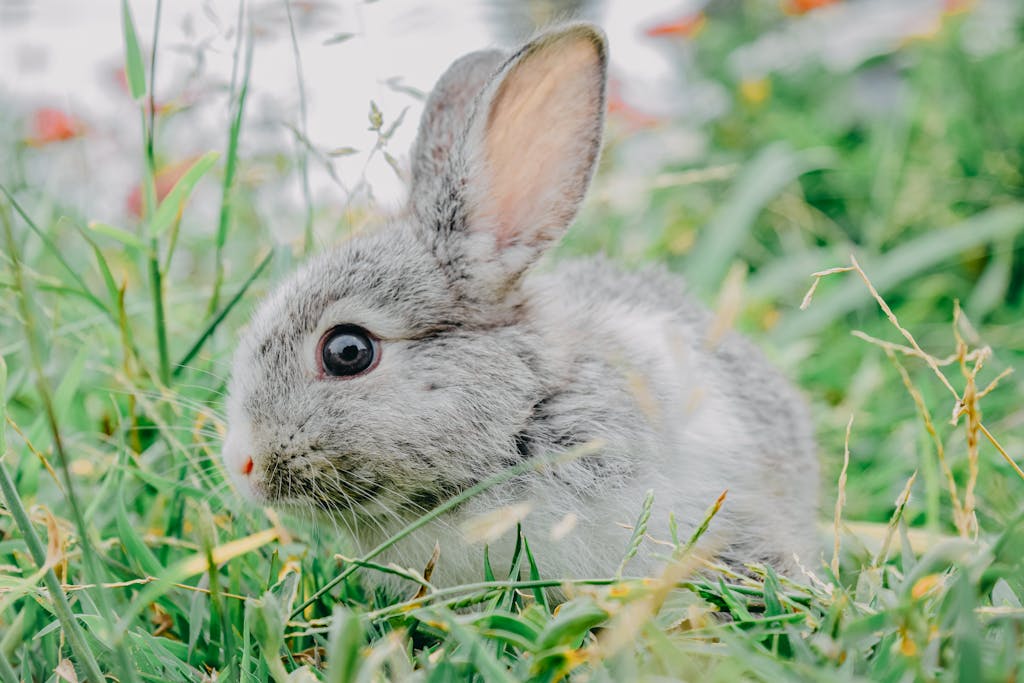
Potential Health Risks
When it comes to feeding your rabbit pineapple, it’s important to be aware of the potential health risks. While pineapple can be a healthy and tasty treat for your rabbit when given in moderation, it can also cause digestive issues and allergic reactions if not given properly.
Digestive Issues and Sugar Intake
Pineapple is high in sugar and can cause digestive issues such as bloating, gas, and diarrhea if given in excess. It’s important to limit the amount of pineapple you give to your rabbit and to monitor their reaction closely. If your rabbit is prone to digestive issues or has a history of obesity or diabetes, it’s best to avoid feeding them pineapple altogether.
Allergic Reactions and Toxicity
Some rabbits may be allergic to pineapple, which can cause symptoms such as itching, hives, and difficulty breathing. In rare cases, pineapple can also be toxic to rabbits, causing symptoms such as vomiting, diarrhea, and lethargy. If you notice any of these symptoms after feeding your rabbit pineapple, it’s important to seek veterinary care immediately.
While pineapple can be a healthy and tasty treat for your rabbit when given in moderation, it’s important to be aware of the potential health risks and to monitor your rabbit’s reaction closely. If you have any concerns or questions about feeding your rabbit pineapple, it’s always best to consult with your veterinarian.
Alternatives to Pineapple
If you’re looking for other safe treats to give your rabbit besides pineapple, there are plenty of options to choose from. Here are a few suggestions:
Other Safe Treats
- Leafy greens: Rabbits love leafy greens like kale, spinach, and lettuce. These are healthy treats that can be given in moderation.
- Cilantro: Cilantro is another herb that rabbits enjoy. It’s a good source of vitamin C and can be given as a treat.
- Berries: Strawberries are a favorite among rabbits, but other berries like raspberries and blueberries can also be given as a treat.
- Herbs: Parsley and dill are two herbs that rabbits enjoy. They can be given as a treat in small amounts.
Balancing Treats with Regular Diet
While treats are a great way to bond with your rabbit and provide them with some variety in their diet, it’s important to remember that they should be given in moderation. Treats should never make up more than 10% of your rabbit’s diet.
To ensure that your rabbit is getting the proper nutrition, make sure that their regular diet consists of hay, fresh vegetables, and a small amount of pellets. By balancing treats with their regular diet, you can help keep your rabbit healthy and happy.
Remember, every rabbit is different, and what works for one may not work for another. It’s always a good idea to consult with your veterinarian before introducing new foods or treats to your rabbit’s diet.

